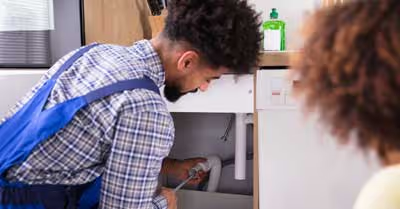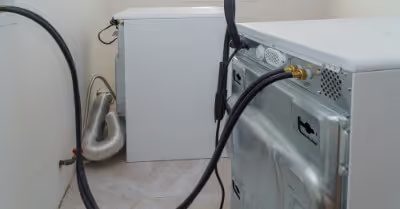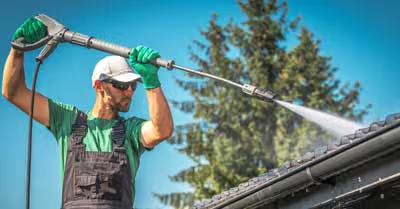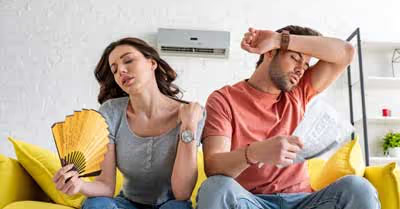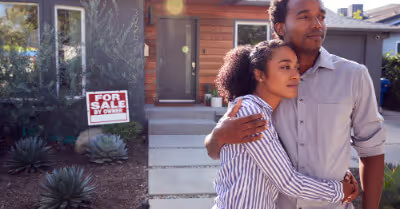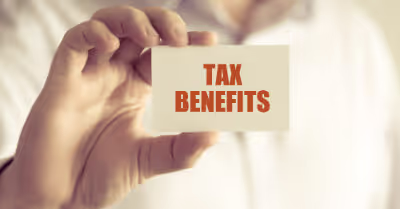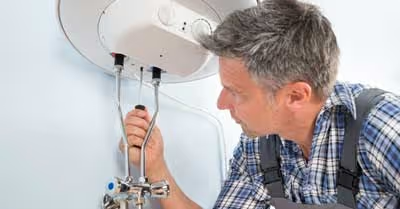Table of Contents
What is a Zero-Down Mortgage?
A zero-down mortgage, as the name suggests, is a home loan that you secure without making a down payment. In simple terms, a down payment is usually the first payment that you make when you sign the final documents for your home loan. The rest of the home's purchase price then comes in the form of a loan, which you will pay off via monthly mortgage payments. The down payment is normally calculated as a percentage of the total home loan that you take.
For instance, if you are purchasing a home valued at $300,000 and you are required to make a down payment of 10%, then you will pay 30,000 upfront as the down payment. You will then borrow $270,000 from the lender. Lenders require borrowers to make a down payment to reduce the risk for them, in case you default on repaying the loan. But as noted above, down payments are a major obstacle for the majority of first-time home buyers and low-income earners. And this is where a zero-down mortgage comes in.
Pros and Cons of Zero Down Payment Mortgages
Pros
- Easier homeownership: Most people can now afford to own a home since they don't have to make a large down payment. Therefore, if you are a first-time buyer or you are a low-income earner, zero-down mortgage provides you with an easier means of purchasing a home. Also, a zero-down mortgage is a huge plus for cash-strapped buyers living in areas where rents are rising faster than home values.
- Purchase a home sooner: With zero down payment, you are now in a better position to purchase a home sooner. Therefore, if you come across a great deal on the market, you can move fast and leverage that window of opportunity, without having to spend years trying to save for down payment.
- More cash at hand: Once you purchase a home, you will also have to spend additional money on furniture, appliances, fixtures, and other expenses to make the home comfortable. With a zero-down payment mortgage option, you will have more cash at hand to take care of those expenses.
Cons
- Little or no equity: If you buy a home via the zero-down mortgage option, you will owe almost 100% of the home's value. And this means you will have little or no equity in your home. In case of an emergency repair, you will not be in a position to borrow home equity lines. Therefore, you will have to look for other financing options to pay for roof repairs, and water heaters, among other expenses.
- Higher interest rates: Borrowing 100% of your home's value may also lead to higher interest rates, thus pushing the cost of ownership even higher. While you may not pay a single dollar today, there is a high chance that you will pay higher interest rates than you would have paid if you had made a sizable down payment.
- Higher monthly payments: The bigger the mortgage, the higher the monthly payments that you will make. And you will be stuck with those payments until you finish paying for that loan. When you have to make large monthly payments, you will be forced to forgo or minimize some of your expenses. In short, it will be harder to accommodate other expenses. However, the mortgage payments that you will make will depend on your lender.
- A higher cost of homeownership: As noted above, some zero-down mortgage options come with higher interest rates and higher monthly payments. Furthermore, you may also be required to pay for private mortgage insurance or PMI - which is a requirement for most lenders, if you are borrowing more than 80% of the home's value. All these additional expenses can add tens of thousands of dollars to your total mortgage payment. Consequently, the cost of owning that home will be significantly higher compared to someone who made a healthy down payment.
- Tight financial situation: Your home should gain value in a normal market situation. Unfortunately, that is not always the case. In some situations, the market may take a turn for the worst, and your home may lose value. As a result, you may be forced to sell the house at a loss, meaning you will owe more than the home's value. To get out of this loan, you will have to make a substantial payment to the lender. And as you may probably know, this is not a welcome event.
As you can see, the zero-down mortgage option has its fair share of pros and cons. While it provides a faster and easier means of homeownership, you will also be taking a huge risk with a zero-down mortgage.
For this method to be sustainable your income has to remain the same or increase while your home has to gain value quickly. Therefore, it's important to carefully consider your financial situation, the pros, and the cons, and then determine whether a zero-down mortgage option is the most viable option for you.
Zero Down Mortgage Options
If a zero-down mortgage appears like the most viable option for you, you have numerous options to explore. The most popular mortgage options that you can secure without making a down payment are the USDA loans and the VA loans.
USDA Loans
The U.S Department of Agriculture or USDA runs a mortgage program with zero down payments for people living in rural areas. These loans are designed to encourage growth and development in the countryside and rural areas. The good news is that these loans are not reserved for people living in rural areas only. They are also available to suburban dwellers. For instance, people who live in college towns such as Christiansburg in Virginia, suburbs of Columbus, Ohio, as well as State College in Pennsylvania, are also eligible for USDA loans.
However, just because you live in a rural or suburban area doesn't mean that you will automatically qualify for USDA loans. Both you and your home have to meet some criteria to be eligible for these loans. For instance, besides your home being located in a suburban or rural area, it should not be a working farm. Also, it should be a single-family unit. Furthermore, the home should be your primary residence.
You also have to meet some financial requirements to be eligible for USDA loans. For instance, you shouldn't have a debt-to-income ratio of more than45%. Also, your household's gross income should not be more than 115 percent of the county where your home is located. Furthermore, you need to have a FICO credit score of not less than 640.
If you meet the eligibility criteria, you will get this loan with zero or low down payments. Also, its interest rates are much lower, compared to conventional loans. You will also enjoy flexible repayments. In short, USDA loans provide one of the most affordable means of homeownership, especially for people living in rural and suburban areas.
VA Loans
If you are a member of the National Guard, an active-duty service member, a veteran or you are the spouse of a deceased veteran, then you may qualify for VA loans. Guaranteed by the Department of Veterans Affairs, VA loans are another option for people looking to buy a home with zero down payments. While the VA loans don't come with mortgage insurance, you will be required to pay an upfront funding fee of approximately 2.15% of the loan's value. The funding fee is then factored into the loan. You can lower the funding fee that you will pay by making a down payment. However, it's not a requirement. The qualifications of VA loans are pretty straightforward:
- Served for at least 6 years in National Guard or reserves
- Active service duty of 90 days consecutively during wartime
- Active service duty of 180 days consecutively during peacetime
- Be the spouse of a deceased veteran who died from a service-related disability or in the line of duty.
Apart from the above service requirements, you are also required to have a credit score of 640 and above to be eligible for VA loans. The standard VA loan for those who meet the eligibility criteria is approximately $510,400. When it comes to VA loans, there are no limits to the amount of money that you can borrow. However, there is a limit to how much the Department of Veterans Affairs will guarantee.
Navy Federal Credit Union
The Navy Federal Credit Union also offers zero-down mortgages for military members and their families. Some select civilian employees of the U.S Department of Defense may also be eligible for these mortgages. Similar to the VA loans, you will also have to pay a funding fee to get this mortgage, but you don't need to make a down payment.
Low Down payment Mortgage Options
If you don't qualify for the above loan options, it doesn't mean that your dreams of owning a home have been shattered. You can still buy a home without having to spend years trying to save for a down payment. Here are some low down payment mortgage options to consider.
- ****FHA Loans: These loans are insured by the Federal Housing Administration and backed by the government. They are a great option for first-time home buyers since you only need to make a down payment of 3.5%. Also, FHA loans are a great option for people with bad credit, since you only need a minimum credit score of 580. However, if your credit score is between 500 and 580, you can still get these loans by making a down payment of 10%. FHA loans are normally offered by private lenders. Therefore, you will have to meet their criteria to be eligible for FHA loans. Also, you will have to pay annual mortgage insurance premiums (MIP), which can increase the loan's overall cost. The amount of MIP will depend on the amount you are borrowing, the loan term as well as insurance rates set by the federal government.
- Conventional Loans: Unlike USDA, VA, and Navy Federal Credit Union loans, conventional loans are not backed, insured, or guaranteed by government agencies. Instead, they are backed by Freddie Mac and Fannie Mae. Conventional loans are available from almost all lenders in the U.S. And contrary to popular opinion, you don't need to make a 20% down payment to get a conventional loan. You can get a loan with a down payment of as little as 3%. However, your lender may require you to pay private mortgage insurance or PMI, especially if you put a down payment of less than 20% of the mortgage amount.
- Home Possible Loans: If your income is low to moderate compared to other people in your area, then you may qualify for a Home Possible loan. Backed by Freddie Mac, Home Possible loans can help you to buy a home with a down payment of as low as 3%. The mortgage insurance for Home Possible loans is also lower, compared to conventional loans.
- HomeReady Mortgage: Backed by Fannie Mae, HomeReady mortgages are offered by many lenders across the country. Similar to Home Possible loans, you only need to make a down payment of as low as 3% to get this mortgage. The mortgage terms are usually flexible and friendly.
Just because you don't have thousands of dollars to make a down payment doesn't mean that you cannot buy a home. As you can see, you can still buy a house with $0 down. In case you don't qualify for a zero-down mortgage, you can still secure a mortgage with a low down payment, and fulfill your dream of owning a home.
Recent Articles



